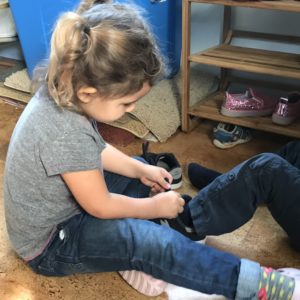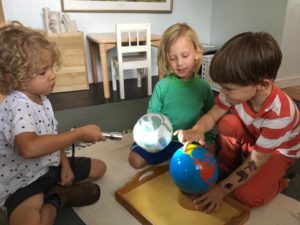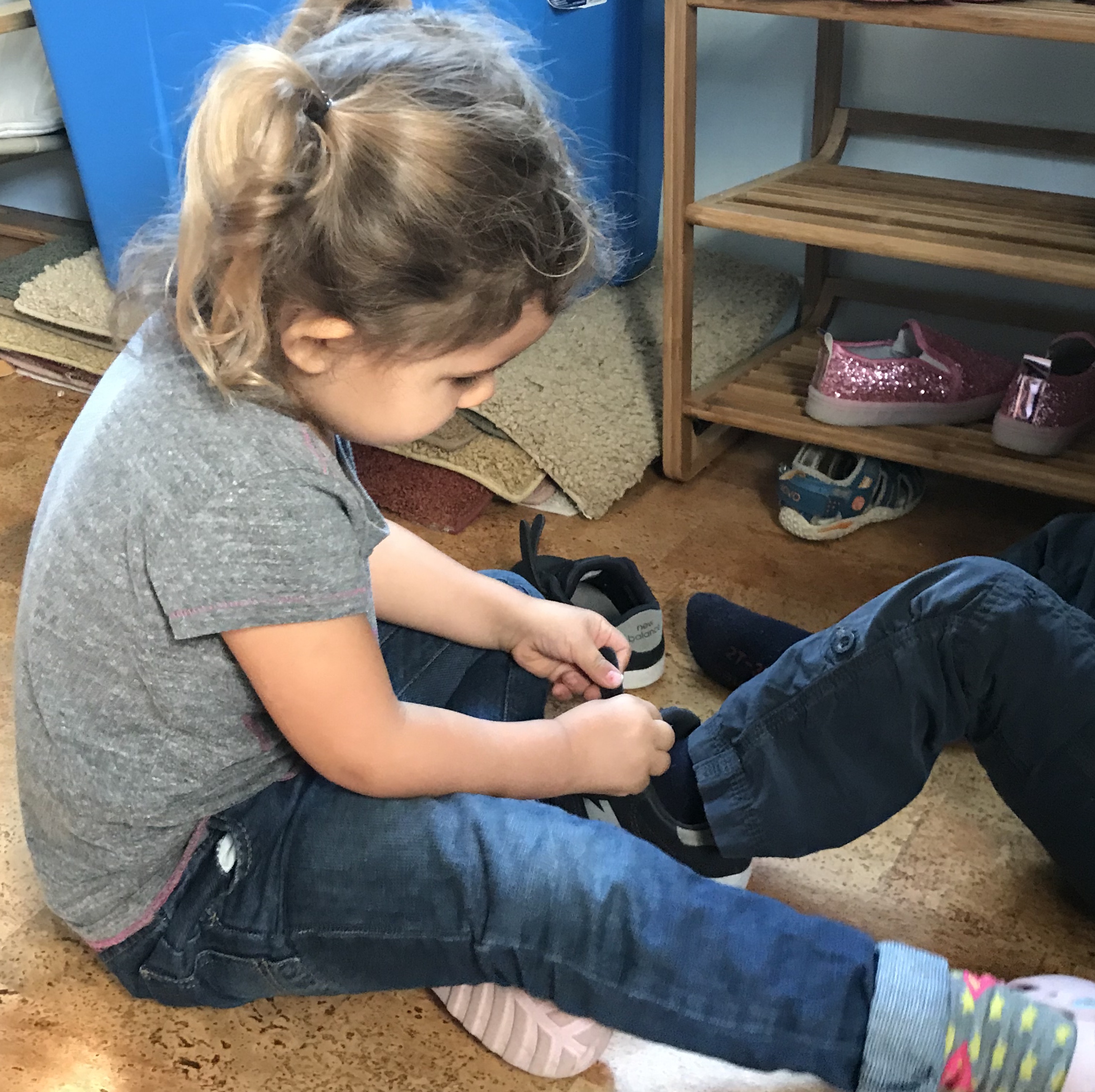“The most important period of life is not the age of university studies, but the first one, the period from birth to the age of six.” –Maria Montessori
 We’re back from Spring Break, and the students are cheerfully milling about the classroom this week. We can’t help but notice how much the students are happy to help each other out. From helping a two-year old with his shoes (at right) to sweeping up a friend’s spilled beans (literally) to explaining how how Silent E works, our students have been eagerly helping and teaching each other.
We’re back from Spring Break, and the students are cheerfully milling about the classroom this week. We can’t help but notice how much the students are happy to help each other out. From helping a two-year old with his shoes (at right) to sweeping up a friend’s spilled beans (literally) to explaining how how Silent E works, our students have been eagerly helping and teaching each other.
In a multi-age classroom, children are taught to use and appreciate leadership skills. Most of our students won’t have this chance in a grade-level classroom. But our third-year students indeed do have this opportunity, and we are always happy that our students, most of whom move on to public schools are “leaders on the playground” and “peacemakers” among their friends.
Helping hands and guiding others…. These are the very traits that will get you promoted at Google. As reported last fall, Google has unveiled some internal data-crunching on the skills possessed by their own staff that were most likely to result in promotion. Google executives concluded that
“among the eight most important qualities of Google’s top employees, STEM expertise comes in dead last. The seven top characteristics of success at Google are all soft skills: being a good coach; communicating and listening well; possessing insights into others (including others different values and points of view); having empathy toward and being supportive of one’s colleagues; being a good critical thinker and problem solver; and being able to make connections across complex ideas.”
This is not surprising to Montessorians, who have long seen their students go on to be  leaders in the classroom and beyond. Google’s two founders, Larry Page and Sergey Brin, attended Montessori primary schools, and give their schooling much of the credit for their success, saying that “being self-motivated and questioning what’s going on in the world that made us a little different.”
leaders in the classroom and beyond. Google’s two founders, Larry Page and Sergey Brin, attended Montessori primary schools, and give their schooling much of the credit for their success, saying that “being self-motivated and questioning what’s going on in the world that made us a little different.”
Google went on to do a more in depth study of the characteristics that make up the best teams, finding that these people “exhibit a range of soft skills: equality, generosity, curiosity toward the ideas of your teammates, empathy, and emotional intelligence. And topping the list: emotional safety. No bullying. To succeed, each and every team member must feel confident speaking up and making mistakes.”
Indeed, these traits are implicit of the Montessori Method–learning from peers, and learning from one’s own mistakes. It is the ability to learn that Google found is what is important, “broad learning skills are the key to long-term, satisfying, productive careers.”
